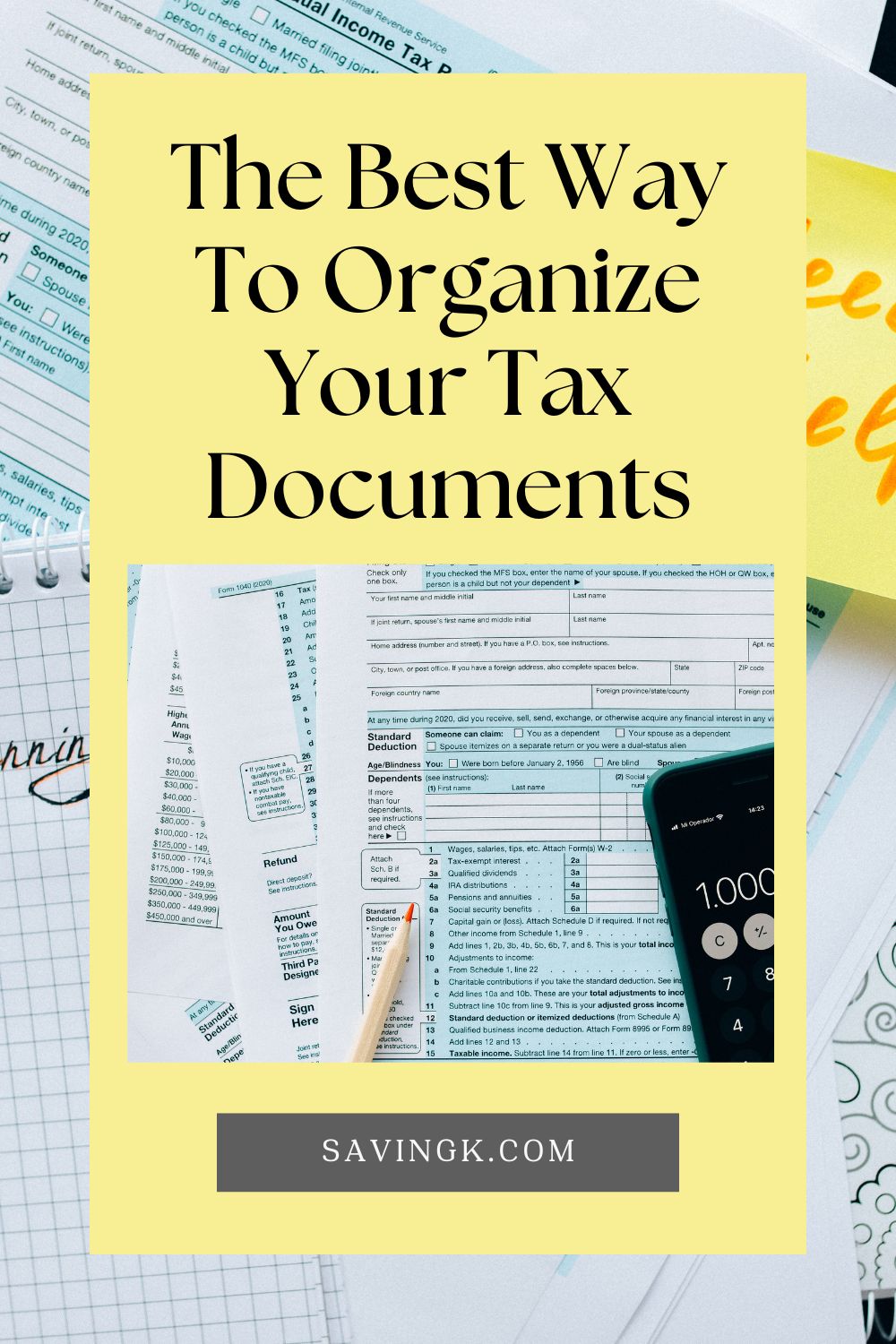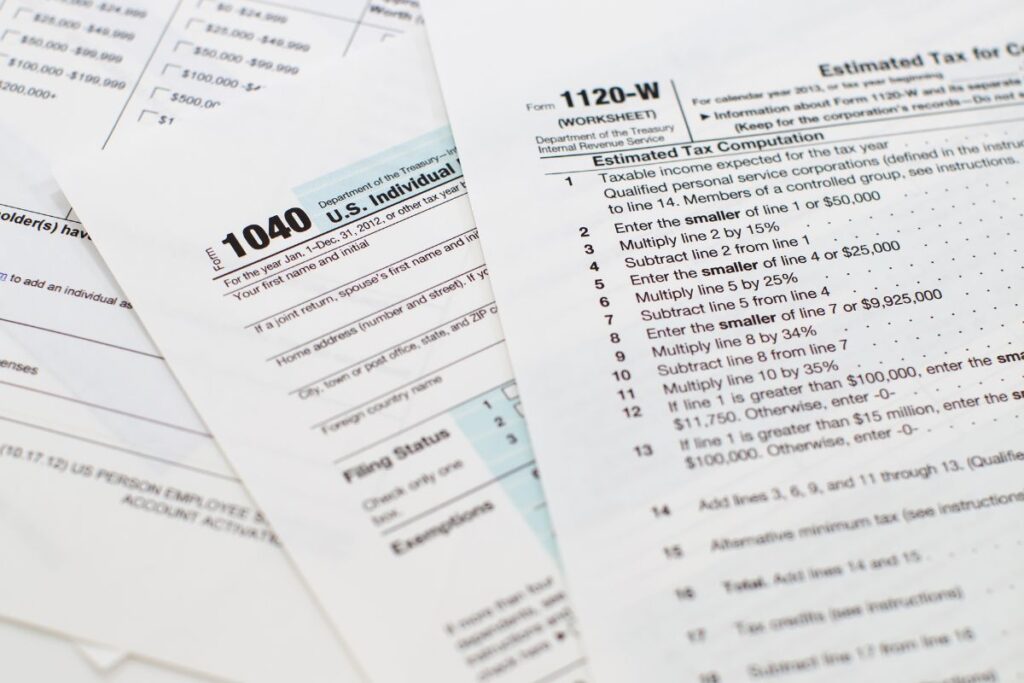
Tax season is the time of year when most people find themselves digging through stacks of documents, trying to piece together their financial information. But what if it didn’t have to be this way? What if you could keep your tax documents organized all year long, without having to scramble for them come tax season? In this blog post, we’ll share our best tips on how to organize your tax documents so that you can easily access them whenever needed.
Contents
Create a System
The key to staying organized is having a reliable system in place that works for you and your particular needs. It doesn’t matter if you prefer digital or paper organization; the important thing is that whatever system you choose makes sense and allows you easy access. For example, if you’re a fan of the paper filing method, consider color coding or labeling the folders where you store your documents. Alternatively, if digital organization is more your speed, look into using an app like Evernote or Dropbox to store and organize all of your tax information in one secure place.
Save Everything
It may seem like a no-brainer but it bears repeating—always save everything related to taxes! This includes receipts, invoices, bank statements, utility bills…you name it! Not only will saving all these things help ensure that nothing slips through the cracks come tax time, but they can also be helpful in case there are any discrepancies down the road. To make sure nothing gets lost in the shuffle, be sure to regularly back up any information stored digitally on an external hard drive or cloud storage platform.
Stay Ahead of the Curve
Once you have a system in place and are consistently saving all relevant information throughout the year, take some additional steps to stay ahead of the game when it comes time for taxes. Do yourself a favor and get an early start on filing by setting reminders throughout the year about upcoming deadlines and due dates (for estimated payments as well as for filing). Taking this proactive approach will make it easier for you come April 15th or whenever else taxes are due.
Mindset Matters Too
Finally, while having the right tools is important, setting the right mindset is just as crucial when it comes to staying organized during tax season and beyond. That means taking things one step at a time and not letting yourself get overwhelmed by all the paperwork involved with taxes. Make a plan of action and follow through with it—that way, you won’t feel like the task of organizing your taxes is too daunting or impossible.
Tax Documents FAQs
Here are some frequently asked questions about organizing your tax documents:
Is it better to store documents digitally or in paper form?
It all depends on what works best for you and your particular needs. If digital organization is more your speed, look into using an app like Evernote or Dropbox to store and organize all of your tax information in one secure place. However, if the paper filing method is more comfortable for you, consider color coding or labeling the folders where you store your documents.
What documents should I save?
You should save any and all documents related to taxes! This includes receipts, invoices, bank statements, utility bills, and anything else you think might be necessary.
What documents do I need to bring to my tax preparer?
When preparing for a meeting with your tax preparer, it’s best to bring all relevant documents that you have. Make sure to collect all necessary documents for submitting your taxes, including financial statements such as W-2s and 1099s, tax forms related to deductions or credits, and receipts of large purchases. It’s also helpful to have a list of any questions you may have for your preparer.
What documents do I need to include with my tax return?
Depending on what type of tax return you are filing, the necessary documents may vary. Generally speaking, however, most returns require financial statements (like W-2s and 1099s), any applicable forms, including those related to deductions or credits, and receipts for large purchases.
How do I send my tax documents to the IRS?
To submit your tax documents to the IRS, you have several options available. You can mail in a hard copy of your documents, submit them online using e-file, or use the IRS’s Free File option. Whichever route you decide to take, make sure you keep copies of all pertinent documents in the event that you need to reference them later.
What happens if I don’t have my tax documents?
If you are unable to locate any of your tax documents, don’t panic. Contact the IRS or your tax preparer to figure out the next steps. Depending on your situation, you may need to fill out certain forms or provide proof of any deductions, credits, or other information related to your taxes. Additionally, make sure you keep a copy of any document that you submit as proof of your tax information.
Can I access my tax documents online?
Yes, you can access your tax documents online through the IRS’s website. This includes forms, payment information, and other pertinent documents related to your taxes. Additionally, some third-party websites offer services to store and organize tax documents digitally for easy access in the future.
What do I do if someone stole my tax documents?
If you think that someone has stolen your tax documents, contact the IRS immediately. They will be able to help you protect your identity and take the necessary steps to ensure your documents are not misused. Additionally, it’s always a good idea to keep copies of any important documents in a secure location. That way, if something were to happen to your documents, you would still have access to them.
Conclusion
Keeping tax documents organized may seem daunting but with a little planning and preparation it doesn’t have to be! By creating a system (whether paper or digital), saving everything related to taxes throughout the year, and staying ahead of deadlines by setting reminders, organizing your tax documents can actually be quite simple—and stress-free! That way when next April rolls around again (or anytime during between) you won’t have worry about finding those missing papers because they’ll already be neatly tucked away where they belong. Happy organizing!





